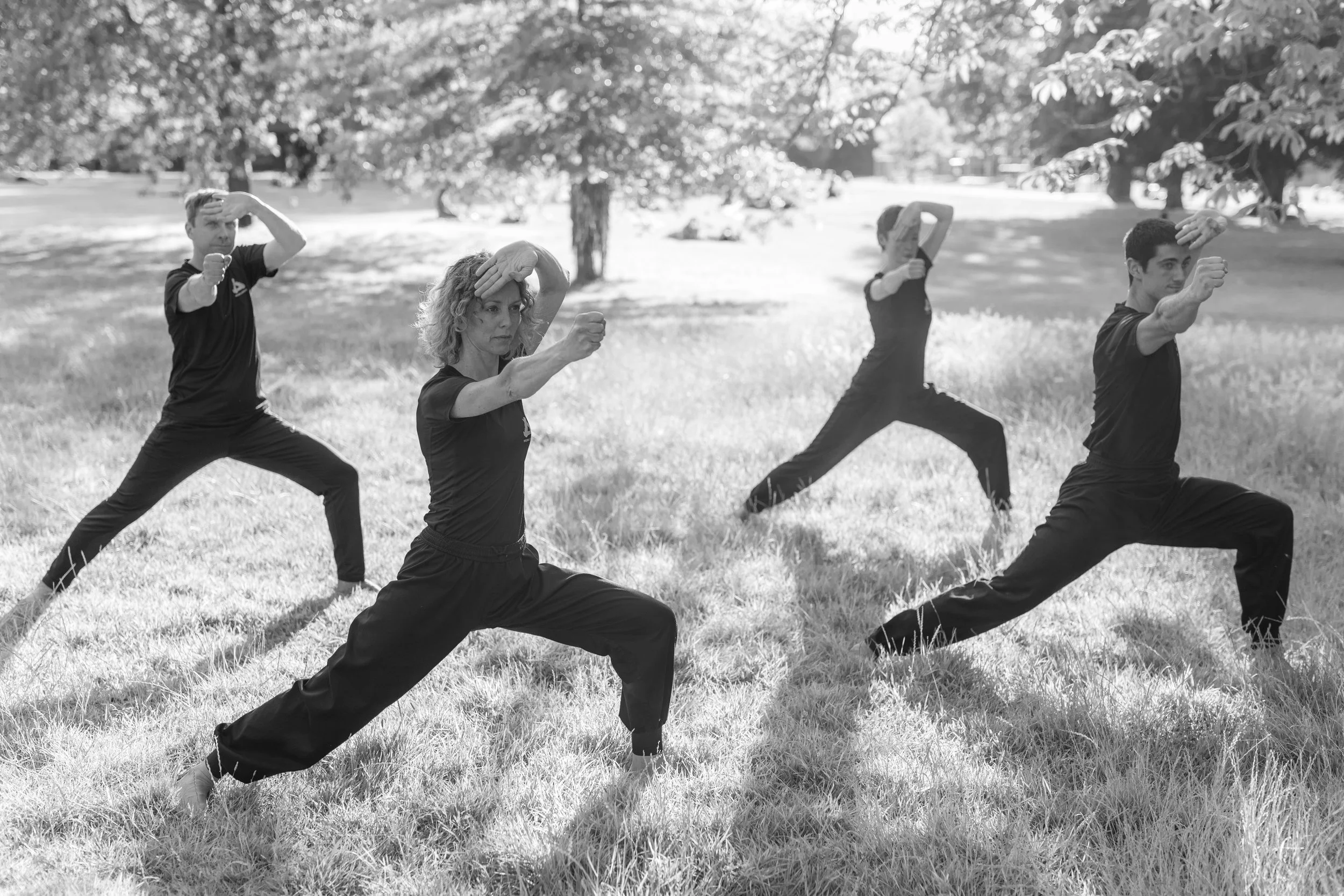The 5 Most Common Questions About Tai Chi Practice
Some common Tai Chi questions answered
What is Tai Chi?
Tai Chi is a gentle, meditative practice that focuses on slow movements, breath, relaxation, and balance.
Its popularity is growing, thanks to its accessibility and wide ranging benefits; from improving overall health and reducing stress, to supporting long term wellbeing and longevity.
As Tai Chi teachers, we’re often asked the same questions by those curious about starting. In this article, we’ve answered the five most common ones, so you can begin your Tai Chi journey with confidence and clarity.
Question 1: What is Tai Chi, and where did it come from?
While there are many myths and legends about the origins of Tai Chi, the truth is that it was likely developed in the mid-1800s, possibly a little earlier, rather than thousands of years ago, as is sometimes claimed.
Tai Chi originated in China and blends elements of martial movement with Taoist philosophy. The influence of Taoism is central to the practice, particularly the focus on balance, the harmony of yin and yang. This is reflected in Tai Chi’s combination of slow, flowing, soft movements with more physically demanding postures and transitions.
The result is a balanced practice that supports both physical health and mental wellbeing.
Question 2: What are the health benefits of practicing Tai Chi?
Regular Tai Chi practice has been shown to improve balance, coordination, flexibility, joint health, and lower body strength. These physical benefits are especially valuable as we age, which is one reason Tai Chi is growing in popularity, particularly among London’s ageing population.
In addition to physical wellbeing, Tai Chi also supports mental and emotional health. The combination of mindful movement and deep relaxation has been shown to reduce stress, enhance mindfulness, and even support emotional regulation. These benefits of Tai Chi resonate across all age groups, yet more and more millennials are drawn to the practice as a grounding antidote to the constant stimulation and demands of modern life.
These benefits are backed by numerous scientific studies, which highlight Tai Chi as a gentle yet effective way to improve overall wellbeing.
Here are some example papers for those interested in further reading:
Tai Chi and psychological well being
Question 3: Do I need to be fit or flexible to start Tai Chi?
No, one of the great things about Tai Chi is that it’s accessible to people of all ages and fitness levels.
Research suggests that Tai Chi is particularly well suited to those with limited mobility, chronic illness, or age related challenges. This is largely thanks to its slow, controlled movements and low impact nature, which places minimal strain on the joints while still supporting strength, balance, and coordination.
Whether you're a complete beginner or returning to movement after injury or inactivity, Tai Chi can be a safe and supportive practice.
Question 4: How is Tai Chi different from yoga or other martial arts?
While Tai Chi may once have had martial applications, much of that aspect has been lost over time. Today, Tai Chi is primarily practiced for its health benefits, both physical and mental.
Unlike yoga, which often emphasizes static postures and holding poses, Tai Chi is more dynamic. The practice involves continuous, flowing movements as you transition through sequences of forms and patterns.
Tai Chi also differs from harder martial arts like kickboxing or kung fu. It doesn’t focus on combat or competition, but rather on the individual’s internal development, building balance, awareness, coordination, and calm through mindful movement..
Question 5: How often should I practice Tai Chi, and how do I get started?
As with any practice, the more consistently you train, the sooner you'll begin to notice the benefits. Even a short, regular practice can lead to meaningful progress over time.
We recommend starting by joining our Saturday morning Tai Chi session, it’s a great way to learn the fundamentals in a supportive environment. From there, you can gradually build your practice at a pace that suits you.
How to start
We hope this article has answered some of your key questions about Tai Chi. If there's anything else you're curious about, we’re always happy to help, just get in touch.
If you’re feeling ready to take the next step, why not join us for a trial class? It’s the perfect way to experience the benefits of Tai Chi for yourself and start your journey toward better balance, health, and wellbeing.

